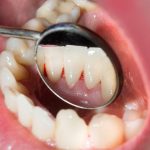Tooth loss can cause jaw problems. Without teeth, the jawbone often deteriorates due to lack of stimulation. In some cases, there is such significant bone loss that dental implants and even bone grafts become impossible.
Maxillofacial surgeons have come up with a solution to overcome this problem: zygomatic implants.
Read on to find out more about this dental implant technique.
What are zygomatic implants?
Zygomatic implants are a special type of dental implant. While regular implants are placed into the jawbone, zygomatic implants are designed to be anchored to the zygomatic bones (cheekbones).
The zygomatic bones are used because some patients don’t have enough jawbone mass to support a regular dental implant. Zygomatic implants are an alternative to bone grafts.
Maxillofacial surgeons will always perform a complete evaluation of the patient first in order to determine which dental implant and procedures are best suited to their situation.
Who are zygomatic implants for?
Since zygomatic implants are anchored to the cheekbones, they are only used for patients who are missing some or all of the teeth in their upper dental arch. Patients who have insufficient bone mass in the lower jaw will most likely need a bone graft to anchor traditional implants.
Each patient has different bone structure, so zygomatic implants may work for one person, but not another. It is up to the maxillofacial surgeon to assess the situation and decide which solution is likely to work best for the patient.
The advantages of zygomatic implants
Zygomatic implants are becoming more and more widely used by oral and maxillofacial surgery specialists, with good reason. The technique has many advantages for patients, including:
- No bone grafts: Since zygomatic implants are placed into the cheekbone, there is no need to perform a bone graft. The patient therefore avoids having an additional surgery and waiting months for the graft to consolidate. Work on the dental prosthesis can start earlier, and the total treatment time is shortened.
- Immediate prosthesis placement: With zygomatic implants, patients have the option of getting their dental prosthesis the same day. They no longer need to wait to regain full dentition.
What does the procedure involve?
Are you wondering what to expect from zygomatic implant surgery? Here are the steps of the process:
- The maxillofacial surgeon will perform a complete examination of the oral cavity to determine the state of the jawbone. The examination will include the use of 3D radiology. If bone grafting is deemed impossible, the surgeon will consider zygomatic implants.
- The surgeon will prepare a plan based on the results of the 3D radiology and provide a cost estimate.
- On the day of the procedure, the patient will have the option of being placed under intravenous sedation before receiving local anaesthetic. The surgeon will then place the zygomatic implants and dental prosthesis.
- After the surgery, there will be several follow-ups to ensure that everything is healing well and the implants are integrating properly into the bone.
Dental implants at Clinique MFML
Zygomatic implants are an alternative to traditional dental implants. They are used for patients whose low jawbone mass makes bone grafts impossible. The biggest advantage of zygomatic implants is that the dental prosthesis can be placed on the same day as the implants, giving patients the opportunity to enjoy their new smile sooner.
Looking for a dental implant specialist in Montreal? Our maxillofacial clinic welcomes you with open arms to offer you personalized, high-quality services.
Contact us to make an appointment!




